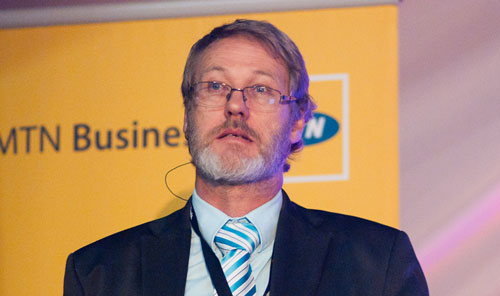
There is a clear business case for building fibre-to-the-home networks in SA, and more telecommunications companies should be looking at it.
That’s the view of Independent Communication Authority of SA (Icasa) councillor William Stucke, who was speaking in his personal capacity at a broadband summit in Johannesburg on Monday.
Operators such as Telkom and Neotel have long insisted that the business case for large-scale fibre-to-the-home networks in SA is poor given that customers are spread out over large geographic areas.
However, Stucke says building fibre to the home would cost roughly R10 000/house in terms of upfront investment, a cost operators could recover by charging R350/month for three years.
National Empowerment Fund-backed i3 Africa recently unveiled plans to build a fibre network connecting 2,5m homes in the next four to five years at a cost of up to R6bn. “There are some questions around i3 Africa, but it has a promising model,” Stucke says. “If it works, it has the potential to bring more fibre to homes than Telkom has copper connections.”
Fibre should be the way South Africans get connected to the Internet, he adds. For now, though, the investment in national and metropolitan fibre networks needs to be the main focus.
Stucke says Angola, Mozambique and Kenya have far outstripped SA in national fibre projects. “You need about 20 000km of fibre to reach 150 towns that house a population of at least 10 000 people. Only Telkom has that at the moment, but that is changing.”
Almost all the big operators have started to build national fibre networks, and many of them have coupled these deployments with networks in the cities, which Stucke says is the second most expensive component of a fibre project after providing direct access into people’s homes.
However, he says the cost of national capacity remains higher than international capacity. Stucke says that until there is a boom in national capacity similar to the changes that the Seacom submarine cable system brought to international bandwidth costs when it went live in 2009, there won’t be a marked decrease in pricing on national backhaul. — Candice Jones, TechCentral
- Subscribe to our free daily newsletter
- Follow us on Twitter or on Facebook




